Theories
by martina gutfreund


1. Media Ecology Technology Theory
1.1. Looks at what roles technology/ media assigns to us
1.2. Study of how technology affects the way we live
1.3. Media is seen as an environment
2. SCOT Technology theory
2.1. Rather than us being affected by technology, it is us that shape technology
2.2. Through a process of accepting/ rejecting certain aspects, we shape technology until it has reached its final purpose
2.3. Society decides wether a technology is going to be used
3. TPACK
3.1. TPACK stands for: Technological Pedagogical Content Knowledge
3.2. Uses a Venn diagram to show connections between the components
3.3. gives educators a simple framework to understand the role of technology in teaching
3.4. influences both content and pedagogy
3.5. provides a reflective framework for the purposeful use of technology in the classroom
3.6. TPACK can be applied in: -teacher professional development - lesson plan development - teacher education
3.7. major components
3.7.1. TPK- technological pedagogical knowledge. >how technology affects the way you teach
3.7.2. TCK - Technological content knowledge. >technology can influence teaching and content
3.7.3. PCK - pedagogical content knowledge. >subject matter content is transformed for teaching and subject matter content influences how we teach
3.8. 3 Major types of Knowledge
3.8.1. Pedagogical knowledge
3.8.2. Content knowledge
3.8.3. Technological knowledge
4. Philosophy of Teachnology
4.1. The same idea as Philosophy of Teaching, but specifically addresses the use and purpose of technology in the classroom
4.2. TPACK informs your philosophy of teachnology
4.3. how technology can and should be used in your teaching practices
4.4. Philosophy of teachnology should be made clear to students, colleagues, and employers
4.5. Should be based upon personal views, but these views will often change throughout one's career
5. Cognitive Load Learning Theory
5.1. The mind is seen rather as a computer, with a vast and organized memory system
5.2. Learning occurs from scaffolding or layering information
5.3. There are 3 types of memory: Sensory, short term, long term. Working memory filters out important things which convert to long term memory.
5.4. Processing information can either under or over load working memory
5.4.1. Teachers must be careful not to offer too much or too little material, so that they do not hinder student learning.
5.5. criticized for ignoring affective and psychomotor, and for being too focused on knowledge
6. Constructivist Learning Theory
6.1. Learning occurs by building connections and engaging with the environment
6.1.1. Learning is active
